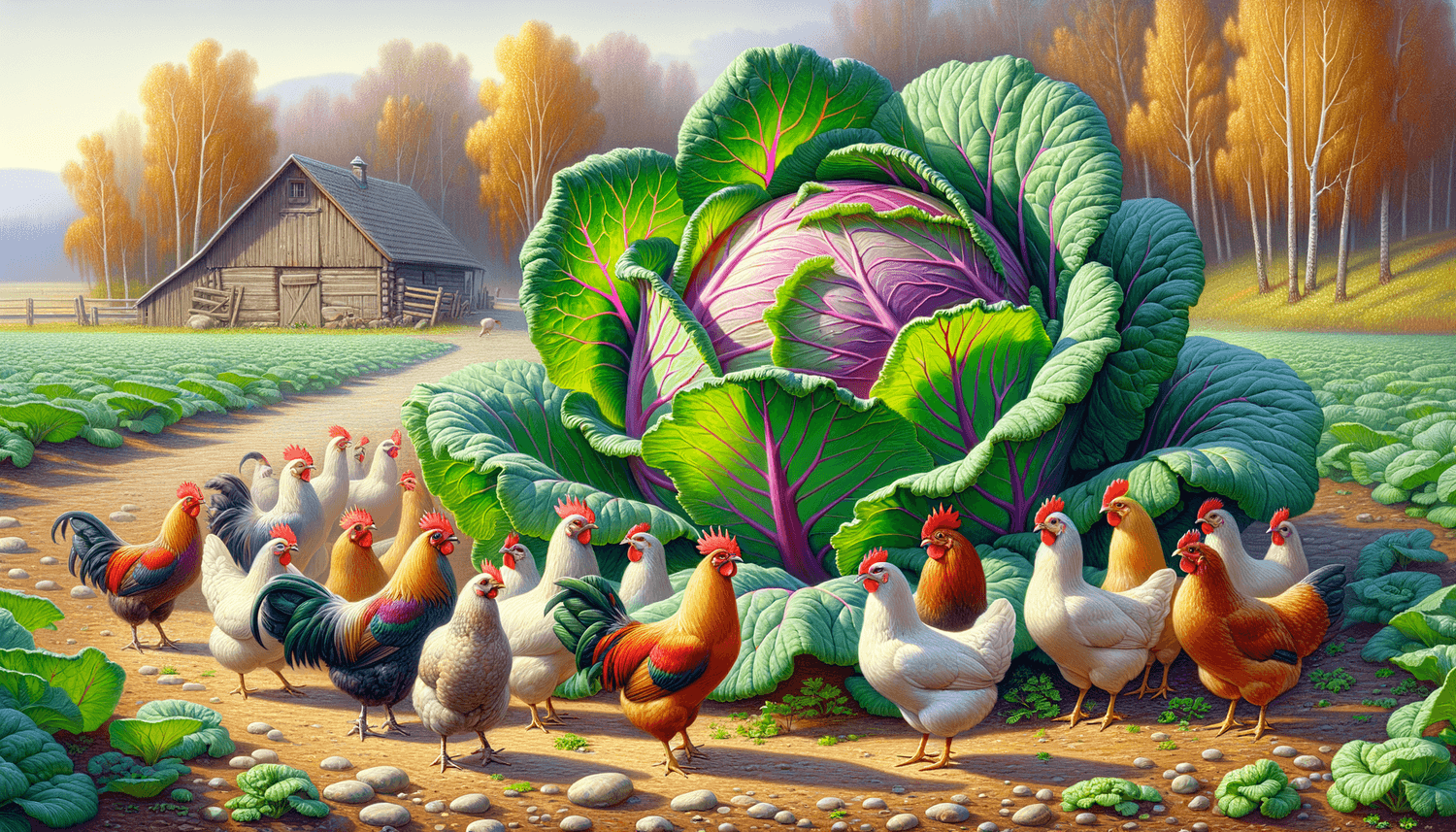Oh, the joy of raising backyard chickens and their never-ending curiosity for food! As a chicken owner, you’ve likely found yourself pondering the dietary boundaries of these feathered friends. In today’s cluck-tastic blog post, we’ll turn our beady gaze to an underappreciated vegetable: kohlrabi. More specifically, can chickens eat kohlrabi leaves? Stick around for the ultimate pecking particulars as we discuss consuming kohlrabi leaves, the impact on your chook’s diet balance, the benefits and/or risks, nutritional tidbits, and even some feather-ruffling preparation tips. So, fluff up those feathers and let’s get crackin’ (no egg pun intended)!
Can chickens eat kohlrabi leaves?
Yes, chickens can absolutely eat kohlrabi leaves and it is safe for them to do so. Kohlrabi leaves are a good source of vitamins and minerals, making them a healthy and beneficial addition to your chickens’ diet. However, it’s essential to remember that moderation and a balanced diet are key to keeping your backyard birds in tip-top shape.
A balanced diet, the key to clucky chickens
Just like us humans, chickens require a balanced diet to stay healthy and happy. A bird’s dietary needs change throughout its life, from a fluffy chick to a fully grown, egg-laying superstar. Serving up well-rounded, nutritious meals for your backyard buddies is essential to maintain their growth, immunity, and overall well-being.
For chickens, a balanced diet primarily consists of high-quality chicken feed, which should make up around 80-90% of their overall intake. Chicken feed is formulated to meet a chicken’s nutritional needs, containing the necessary protein, vitamins, and minerals to support their fast-paced metabolism.
Of course, variety is the spice of life, so the remaining 10-20% of your chicken’s diet can be composed of treats like fruits and vegetables. Introducing these tasty morsels not only adds excitement to their meals but can also provide additional vitamins and minerals that may not be found in their regular chicken feed. Remember to keep things varied and healthy—and watch those feathers fly with excitement!
Nutritional value of kohlrabi leaves for chickens.
Kohlrabi leaves are indeed a nutritious treat for your chickens. These leafy greens are packed with vitamins and minerals, providing valuable supplements to your flock’s diet. For instance, they are a good source of vitamin A, which plays a significant role in maintaining the birds’ vision, reproduction, and immunity. Additionally, these leaves are rich in vitamin C, which offers immune system support and helps to keep your chickens healthy and happy.
Besides vitamins, kohlrabi leaves also contain essential minerals such as calcium, potassium, and magnesium. Calcium contributes to sturdy eggshells and strong bones, a fundamental requirement for egg-laying hens. Potassium supports the proper functioning of cells, organs, and tissues, while magnesium aids in energy production and muscle functioning.
Another benefit of feeding kohlrabi leaves to your chickens lies in their hydration properties. As a high-water-content vegetable, it contributes to keeping your chickens well-hydrated, particularly during scorching summer months. The fiber present in kohlrabi leaves also assists in digestion, helping maintain your chickens’ overall gastrointestinal health.
So, it’s clear that kohlrabi leaves are not only a safe but also a nutritious treat for your feathered friends. Remember, though, that treats should be provided in moderation as part of a well-rounded and diverse diet for your backyard chickens.
Nutrition table of kohlrabi leaves for chickens.
| Information | Description |
|---|---|
| Nutritional Value | High in vitamins A and C, calcium, potassium, and magnesium. |
| Suggested Serving Size | Small handful, as part of the 10-20% treats in the diet. |
| Safe Feeding Practices | Feed in moderation, alongside a diverse diet and high-quality chicken feed. |
| Preparation | Wash leaves thoroughly, chop into smaller pieces, and mix with other vegetables or serve by itself. |
| Potential Risks | Overfeeding may disrupt the balance in their diet, causing potential health issues. |
| Hydration | High water content helps keep chickens hydrated, especially during hot weather. |
| Digestion | Fiber in kohlrabi leaves aids in digestion and supports overall gastrointestinal health. |
| Seasonal Availability | Available especially in spring and fall, but stores may have it year-round. |
| Other Benefits | Adding varied treats like kohlrabi leaves can help maintain a happy and healthy flock. |
Introducing kohlrabi leaves to your flock
Now that you’re fully versed in the fantastic nutritional value of kohlrabi leaves for chickens, it’s time to introduce this leafy green delight to your flock. When presenting kohlrabi leaves to your birds for the first time, it’s essential to monitor their reaction. Some chickens might gobble up the fresh treat immediately, while others might take a little more coaxing.
If your chickens seem hesitant, try mixing the kohlrabi leaves with other vegetables or treats they already enjoy. Combining new and familiar foods could encourage them to give the kohlrabi leaves a try. Don’t forget, allure is key!
Homegrown kohlrabi: a double win
If you’re a gardening enthusiast or simply looking to get more involved in self-sustainability, growing kohlrabi in your backyard is a fantastic idea. Not only will you be able to conveniently provide your chickens with fresh, pesticide-free kohlrabi leaves, but you’ll also have the added benefit of enjoying the delicious kohlrabi bulbs yourself. Kohlrabi is a cool-season crop, perfect for planting in spring and fall, and it grows well in most regions, making it a versatile addition to any home garden.
In conclusion, kohlrabi leaves are an excellent, nutritious treat for backyard chickens. When fed in moderation, these leafy greens contribute to a balanced, healthy diet your birds will delight in. Grow your own kohlrabi or source it from your local market, taking into account the added nutritional benefits, and watch your happy, healthy flock thrive.

















